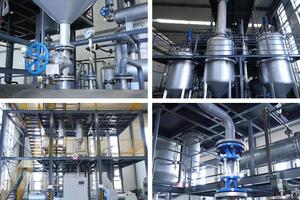Transforming Waste into Wealth: The Role of Waste Oil Recycling Plants
الجسم
Understanding Waste Oil
Waste oil is a byproduct of numerous industrial activities, ranging from manufacturing processes to automotive maintenance. It includes used motor oil, hydraulic fluid, and other lubricants that become contaminated during their operational life. Improper disposal of waste oil can result in soil and water contamination, posing serious threats to ecosystems and human health.
The Need for Waste Oil Recycling Plants
Waste oil recycling plants are essential for addressing the environmental impact of improper disposal and for harnessing the latent value in used oil. Traditional methods of disposal, such as incineration or dumping in landfills, are not only harmful but also squander the potential of reusing and repurposing these valuable resources.
Key Components of Waste Oil Recycling Plants
Collection and Pre-treatment: Waste oil is collected from various sources, including automotive service centers, industries, and individual consumers. Before processing, it undergoes pre-treatment to remove impurities such as water, sludge, and solid particles.
Distillation and Re-refining: Distillation is a crucial step in the recycling process. The waste oil is heated to separate its components based on their boiling points. This process effectively removes contaminants and separates the oil into base oils and additives. Re-refining ensures that the recycled oil meets or exceeds industry standards.
Hydrotreating: Hydrotreating involves the use of hydrogen to further refine the oil and remove any remaining impurities, resulting in a high-quality, purified base oil that can be used in lubricant manufacturing.
Additive Blending: The purified base oil may undergo further processing to add specific additives, enhancing its performance and ensuring it meets the required specifications for various applications.
Final Product: The final product of a waste oil recycling plant is a high-quality base oil that can be used as a lubricant in engines, machinery, or other industrial applications. Some plants may also produce other products, such as asphalt extender or fuel oil.
Environmental and Economic Benefits
- Reduction of Environmental Impact: Waste oil recycling plants contribute significantly to reducing the environmental impact of used oil disposal, preventing soil and water pollution and minimizing the carbon footprint associated with the production of new lubricants.
- Resource Conservation:By recycling waste oil, these plants contribute to the conservation of valuable natural resources that would otherwise be extracted for the production of new lubricants.
- Job Creation:The establishment and operation of waste oil recycling plants create job opportunities, supporting local economies and contributing to sustainable development.
Conclusion:
Waste oil recycling plants play a pivotal role in transforming a potential environmental hazard into a valuable resource. By implementing advanced technologies and sustainable practices, these facilities contribute to a circular economy, reduce environmental pollution, and foster the responsible use of resources. As the world seeks innovative solutions to environmental challenges, waste oil recycling plants stand out as a shining example of turning waste into wealth.








تعليقات